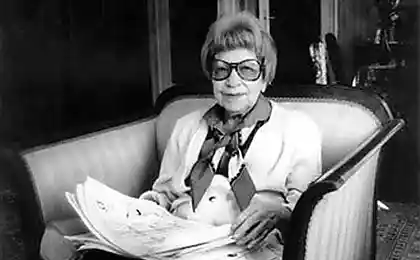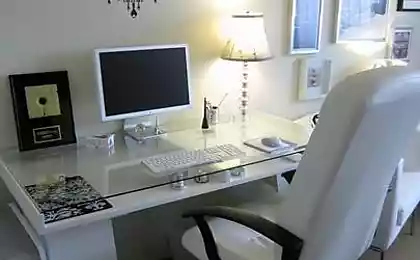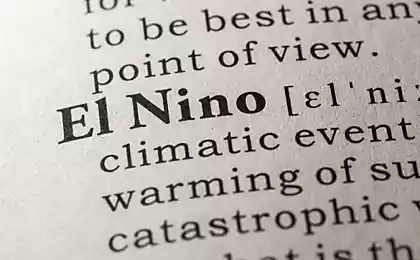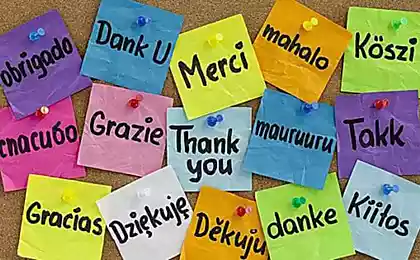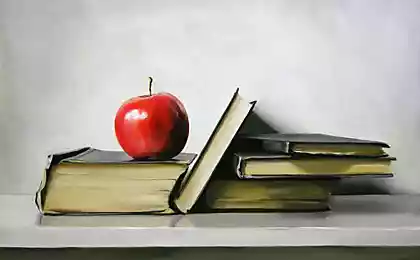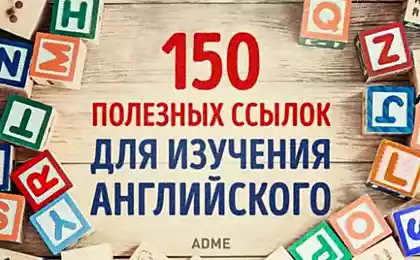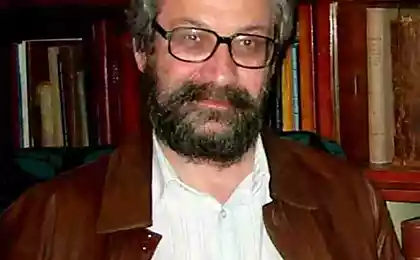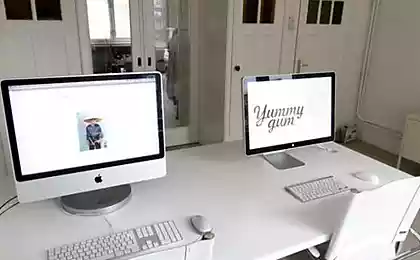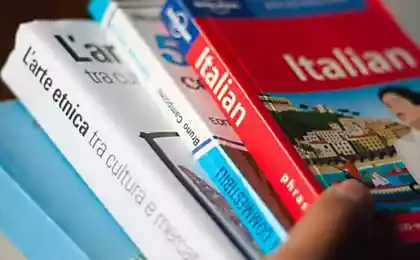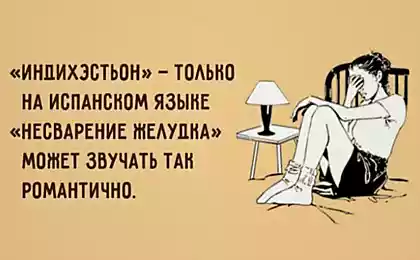1000
Polyglot Kato Lomb: How to learn any language
The Hungarian translator and writer Kato Lomb knew 16 languages, almost everything learned on his own and constantly meeting new, for example, the Hebrew took already 80 years old. However, she was sure, that it is impossible to divide people into those who are new languages are easier, and those who are unavailable.
Publish an excerpt from her book "How I learn languages. Notes polyglot", where the non-existent adelskogh she shares her universal method:
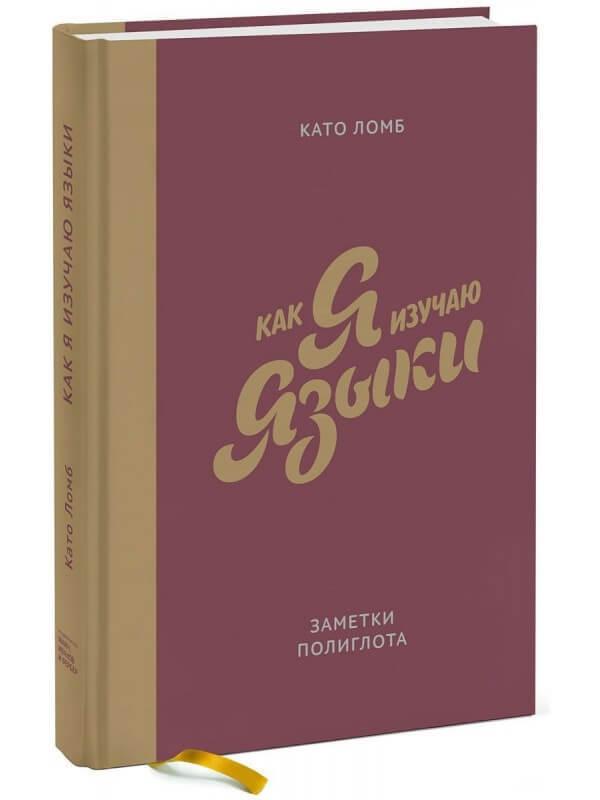
Suppose I want to study Esilsky language. Such language, of course, does not exist. I invented it at this very moment, to summarize and to emphasize the unity of my approach.
To begin, I head out in search of a sufficiently thick adelskogh dictionary. I never buy small dictionaries: experience — not only mine! — shows that they are quickly becoming unnecessary, you still have to look for a large dictionary. If you can't get basilisco-Hungarian dictionary, then trying to get basilisco-English, basilisco-Russian, etc.
First use this dictionary as a textbook. Learn him the rules of reading. In every language (and hence in every dictionary) there are quite a large number of international words. And the larger the dictionary, the more of them. The names of Nations, countries, cities (mostly those that are smaller, the names of which are not distorted by the so-called tradition, that is, frequent use), and "nadjanema" terminology of science opens up to me all the relations between letter and sound in utilicom language. (Remember that in the Russian-English dictionary, purchased by me in 1941, I found my name — Catherine.)
Words do not teach, only consider them: think of the letters and sounds, measure their length, as if it was about the crossword puzzle. While I deal with read the rules and the dictionary opens me and other "secrets" of language:
This is only sample on the tongue, the taste, the touch. The first rapprochement with the language, then to friends.
Together with the dictionary or immediately followed buy the textbook and fiction on utilicom language. Since I'm the Average Student, that is, need to educate yourself, buy books with the key, such that contains the correct solution of problems. Read one after the other lessons and do all the exercises. Write "roomy", that there is a place for corrections. Look in the "key" and correct record of my incorrect variations. So you get a visual "history of my stupidity".
Scold yourself for mistakes and then forgive yourself (this is very important: look below the tenth commandment!). Notebook always leave as much space next to wrong, distorted words and phrases to write five-six correct. It helps to learn the right form.
As the study of the textbook the class is pretty boring, the fun, as they say, is below average, at the very beginning accept for reading silskih plays or stories. If I managed to get the adapted texts, I read them. If not, take any work of literature. Always acquire at least a couple in the hope that one of the two will be clearer. Too modern literature try not to read, because sometimes you don't understand it and in Hungarian.
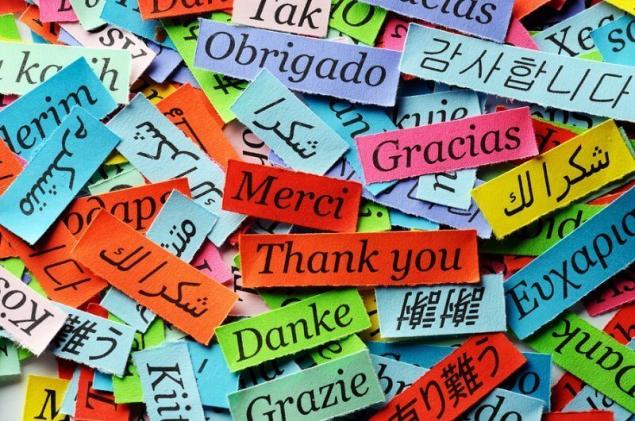
So immediately be accepted for public presentation and content. The path from misunderstanding through propanamine to fully understand for an adult is exciting, interesting tourist route, worthy of the development of his spirit. After reading the book and saying goodbye to her, praising himself for endurance and perseverance.
At first reading write only the words are understood, that is, those whose meaning I could understand it in context. Of course, not in an isolated form, and creating for each its own little context. Only when you read the book in a second and then a third time, write all the remaining unfamiliar words. But no, not all, but only those who are akin to me, my personality that I use in my native Hungarian speech or that I understand (after all not all the same words we normally use not all, to be honest! — understand well). And to all the words which I write, definitely adds the "Bush", "family" (of "Bush" can be found in the book or the dictionary).
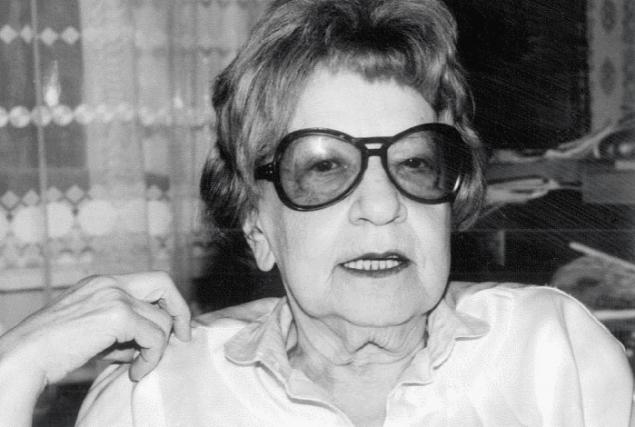
To speak a foreign language is a matter of habit. In the sense that a smart man only reaches to the height which allows him to an increase in the ceiling of his knowledge
However, this is still not taught the most important of already repeatedly mentioned four language skills — "understanding spoken language". Having worked diligently rewriting the tutorial, I still didn't get enough a correct idea of the pronunciation. So at the very beginning of oilskin language one to two hours I dedicate to "mapping the air". Know when and on what waves I can listen to radiotransmission on utilicom language.
Suppose the Budapest radio gives its broadcasts in seven languages, Moscow — more than 70, Prague — 17; well-heard radio station nearby or close lying States. So in this set Esilsky language gets necessarily. In the latest news contains, as is well known, the most important events of the day. Although they are tailored to suit the interests of the people of Brazil, in General, they differ little from the latest transfer news in other languages. Therefore, for learning and self-understanding, I always listen to the same day, the latest news on Hungarian or any other, I understand. So I get something like a key or even a dictionary, if you will.
If while listening airsofting messages I hear an unfamiliar word (in the beginning, as a rule, a lot of unfamiliar words, so do those who manage, and, if possible, without compromising attention to speech), then mark it in a notebook and after the transfer you find in the dictionary. Immediately. Because the memory persists for the context of the word. The context also helps in the case if the word is heard incorrectly (which happens quite often). And if after all this word to find in dictionary managed, the feeling of satisfaction more than rewards for work.
Then — not immediately, but after a day or two — the vocabulary obtained from the air, written in the fine dictionary. This placement in time would recommend because this way I force myself to refresh, to repeat the beginners have to escape from the memory of the knowledge.
Once a week write down the transfer tape and the recording is stored until then, until you scroll through it several times and do not squeeze out of it everything possible at the moment. Usually primarily focus on pronunciation. And often come across words that I already know from the books, but I didn't recognize immediately because I had the wrong idea about their phonetic; occurs, thus re-acquaintance.
Strive, of course, find a teacher who can give me the basics adelskogh language. Good luck if you can find a professional teacher. But if not, looking for Dating with a native speaker, the student or the specialist who came to our country for a long period.
With great pleasure take lessons in women than in men. Probably because women talk better to talk to them easier now, easier to find and contact. (In fact, the reason for this for centuries known phenomenon?)
From your teacher adelskogh language waiting in turn, what you can't get from books or from the radio:
1) able to negotiate a slower rate of speech, to catch as many words as possible;
2) ability to fix my own adelskogh-based tasks, diligently performed by me for each lesson.
First, I write what comes to mind, because it is easier. Often, some phrases which introduce what is seen or heard new words, grammatical forms. The fixes allow me to check whether I understood the meaning of words, their role in the sentence. And then begin to translate. Advance the text one way or another forcing to use not well known words and forms, and less defined, which requires me to hard, unforgiving atmosphere of the transfer. In contrast to the many professional language teachers, I share the opinion of Istvan Pongo, which in translation — or translation into a foreign language — see the best and most effective gun secure knowledge.
Uncorrected error threat! Repeating irregular shapes, we remember them, and to get rid of them then it is very difficult. Translation, as an entomologist insects, pinning our faults on the pin, puts them under the microscope. And heard, as they say, in one ear and out the other crashes.
For many years I drove to Budapest of the Chinese delegation and the programme of sightseeing has always been to Heroes ' square. At least fifty times I said, in total, in the center of the square pressed against each other wreaths mark the tomb of the Unknown soldier. This is the combination I have translated word for word. And no one ever corrected me: guests are certainly not required to teach. A few years later, when I got out of Beijing stylistic editing of my translation of the tourist brochure, it became clear that the Chinese say: the tomb of the Nameless hero.
A few years ago, I worked in England with a very nice, educated fellow translator. As soon as we met, I immediately asked him to correct my mistakes. And three weeks later, at the farewell, I reproached him that he did not correct any mistakes. Am I never done? "Oh, how, and how much! he replied to my question. Only, you know, we English are so used to the errors of foreigners, that we have developed an automatic mechanism of correction. And while it is written comes to mind, it has already the right shape".
Another case was quite funny and the complete opposite of the previous one. One of the leading politicians of friendly neighboring with Hungary state gave a dinner in honor of several hundred foreign guests. A solemn toast, he said, unfortunately, in their native language, which I very weak. My vague idea about diplomatic Protocol suggested to me that the speech I have to translate it to that language. Will never forget the kindly master, who at the time of transfer and then I stopped, drew my attention to the mistakes made, corrected them, besides explained why it is necessary to say so, and not otherwise! For me it was the best gift. And I also never miss a chance to teach those who took up learning my native Hungarian.
Would like to stress another advantage of the translation in comparison with oral speech. To speak a foreign language is a matter of habit, I would say, routine. In the sense that a smart man only reaches to the height which allows him to an increase in the ceiling of his knowledge. And nothing wrong with that. The trouble here is just that if out and maneuver only in cash by growing your vocabulary is not enriched syntax Arsenal. The clerk need to know 50-60 sentences, but to know them perfectly. The average Student should know a hundred times more. One of my French colleague quipped: "In an interview tell me what you know, translation learn what you need".
Those who have had the patience to read through my thoughts in connection with oilskin language, will find them to probably a lack of two things. In any more or less a solid set of recommendations for the study of foreign language States that, among other things, is necessary to thoroughly explore the history, geography, economy, culture, art and literature, say, of Brazil. Such a meeting even more closer to our goal: the most profound and wide acquaintance with a foreign language. And yet, despite its usefulness, the acquisition or presentation of the above-mentioned knowledge are addicted to excessive.
Many people mistakenly think that staying in the country will automatically give you knowledge of the language of this country. He who before the trip didn't know, going home with a virgin head
And second. Definitely recommend to go to Azelia, because without practice in the country to acquire its language perfectly supposedly almost impossible. Try to go, of course, necessary, but I would not say that the stay in the country — a prerequisite for good language skills.
Many people mistakenly think that staying in the country will automatically give you knowledge of the language of this country. In the language environment to us, perhaps, stick to a pair of conversational turns, two or three dozen words, expressions, but no more. In any case, not more than we can learn at home behind the same time. No random conversations with asilicone nor a comparative study of shop Windows, nor simply listening to it will open to us ways to atelskou language. But listening with a dictionary in hand — Yes! In addition, local Newspapers always have ads about where and when the exhibition opens trip, read the lecture in the local branch adelskogh society for the dissemination of knowledge. Whenever overseas, I try to visit wherever possible. Especially a good tool for language learning — going to the movies. During one of my visits to Moscow, I set a record: three weeks I went to the movies 17 times. The ideal would be, of course, constantly and closely interact with asilicone with family or the same circle of interests. Especially with those who are willing to take the trouble to correct the mistakes of our speech. Only in this case, overseas trip would be beneficial for language learning.
Another factor determining the usefulness of the language travel is the level of our knowledge while staying abroad. Minimal benefit trip abroad brings to those who have studied the language for one, and five. He who before the trip didn't know, coming home with a pristine head. And the one who knew the language very well, to see improvements will be very difficult. Good results will appear, perhaps, only "Threeness".
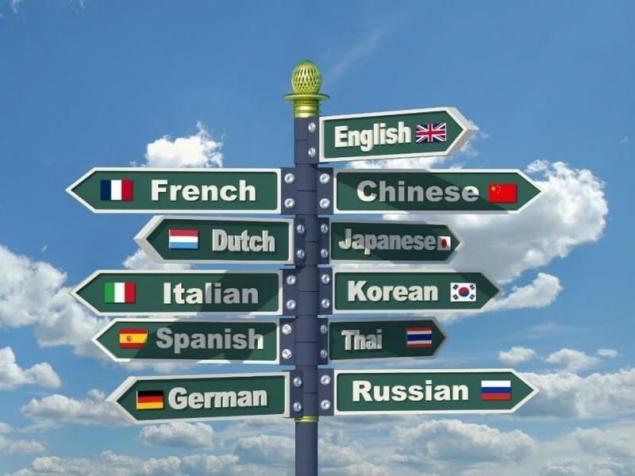
His experience from his travels across the expanses of the foreign languages I summarized in the ten commandments or guidelines to those who really, not flirting, not flirting, wants to learn a foreign language.
I. Mind your language daily. If it does not have time, at least ten minutes. Especially good to do in the morning.
II. If the desire to do too quickly waning, don't force it, but don't leave school. Make some other form: put that book down and listen to the radio, leave the exercises of the textbook and look through the dictionary, etc.
III. Never cram, memorize anything, not separately, in isolation from the context.
IV. You write out of turn and memorize all the "ready-made phrases", which can be used in maximum number of cases.
V. Try to mentally translate everything that is possible: flashing advertising panel, the inscription on the poster, snatches of overheard conversations. It is always rest, even for a tired head.
VI. To learn stands firmly only that fixed by the teacher. Not re-read their own uncorrected exercises: repeated reading of text is stored inadvertently with all faults. If you are doing one, then vyuziva only obviously correct.
VII. Ready-made phrases, idiomatic expression and remember write in the first person singular for Example: I am only pulling your leg (I'm only teasing). Or: Il m'a ROE ' un lapin (He did not come to an appointment).
VIII. Foreign language is a fortress that you need to attack from all sides at once: reading Newspapers, listening radio, watching a laminated film, a lecture in a foreign language, study a textbook, correspondence, meetings, and conversations with friends — native speakers.
IX. Don't be afraid to say, do not be afraid of possible mistakes, and ask to have them corrected. And most importantly, do not worry and do not be offended if you really start to improve.
X. Be firmly convinced that whatever was the will achieve the objectives that you have indomitable will and extraordinary ability for languages. And if you have lost faith in the existence of those — and correctly! — I think that you're just smart enough person to learn so little, as a foreign language. And if the material still resists and mood falls down, scolded textbooks — and rightly so, because perfect no textbooks! — dictionaries — and this is true, because complete dictionaries are not there — at worst, the language, because all languages are hard, and hardest of all — your home. And it will go.published
Also interesting: Personal experience: How I learned 11 languages
What's stopping You to learn a foreign language?
P. S. And remember, only by changing their consumption — together we change the world! ©
Source: theoryandpractice.ru/posts/15498-istoriya-moey-gluposti-sovety-poliglota-kato-lomb-o-tom-kak-vyuchit-lyuboy-yazyk
Publish an excerpt from her book "How I learn languages. Notes polyglot", where the non-existent adelskogh she shares her universal method:
- where to start
- how not to quit and not die of boredom in the process
- what not to do in any case.

Suppose I want to study Esilsky language. Such language, of course, does not exist. I invented it at this very moment, to summarize and to emphasize the unity of my approach.
To begin, I head out in search of a sufficiently thick adelskogh dictionary. I never buy small dictionaries: experience — not only mine! — shows that they are quickly becoming unnecessary, you still have to look for a large dictionary. If you can't get basilisco-Hungarian dictionary, then trying to get basilisco-English, basilisco-Russian, etc.
First use this dictionary as a textbook. Learn him the rules of reading. In every language (and hence in every dictionary) there are quite a large number of international words. And the larger the dictionary, the more of them. The names of Nations, countries, cities (mostly those that are smaller, the names of which are not distorted by the so-called tradition, that is, frequent use), and "nadjanema" terminology of science opens up to me all the relations between letter and sound in utilicom language. (Remember that in the Russian-English dictionary, purchased by me in 1941, I found my name — Catherine.)
Words do not teach, only consider them: think of the letters and sounds, measure their length, as if it was about the crossword puzzle. While I deal with read the rules and the dictionary opens me and other "secrets" of language:
- begin to notice, with what means are formed from the same root the different parts of speech,
- as a verb becomes a noun, noun — adjective, adjective — adverb, etc.
This is only sample on the tongue, the taste, the touch. The first rapprochement with the language, then to friends.
Together with the dictionary or immediately followed buy the textbook and fiction on utilicom language. Since I'm the Average Student, that is, need to educate yourself, buy books with the key, such that contains the correct solution of problems. Read one after the other lessons and do all the exercises. Write "roomy", that there is a place for corrections. Look in the "key" and correct record of my incorrect variations. So you get a visual "history of my stupidity".
Scold yourself for mistakes and then forgive yourself (this is very important: look below the tenth commandment!). Notebook always leave as much space next to wrong, distorted words and phrases to write five-six correct. It helps to learn the right form.
As the study of the textbook the class is pretty boring, the fun, as they say, is below average, at the very beginning accept for reading silskih plays or stories. If I managed to get the adapted texts, I read them. If not, take any work of literature. Always acquire at least a couple in the hope that one of the two will be clearer. Too modern literature try not to read, because sometimes you don't understand it and in Hungarian.

So immediately be accepted for public presentation and content. The path from misunderstanding through propanamine to fully understand for an adult is exciting, interesting tourist route, worthy of the development of his spirit. After reading the book and saying goodbye to her, praising himself for endurance and perseverance.
At first reading write only the words are understood, that is, those whose meaning I could understand it in context. Of course, not in an isolated form, and creating for each its own little context. Only when you read the book in a second and then a third time, write all the remaining unfamiliar words. But no, not all, but only those who are akin to me, my personality that I use in my native Hungarian speech or that I understand (after all not all the same words we normally use not all, to be honest! — understand well). And to all the words which I write, definitely adds the "Bush", "family" (of "Bush" can be found in the book or the dictionary).

To speak a foreign language is a matter of habit. In the sense that a smart man only reaches to the height which allows him to an increase in the ceiling of his knowledge
However, this is still not taught the most important of already repeatedly mentioned four language skills — "understanding spoken language". Having worked diligently rewriting the tutorial, I still didn't get enough a correct idea of the pronunciation. So at the very beginning of oilskin language one to two hours I dedicate to "mapping the air". Know when and on what waves I can listen to radiotransmission on utilicom language.
Suppose the Budapest radio gives its broadcasts in seven languages, Moscow — more than 70, Prague — 17; well-heard radio station nearby or close lying States. So in this set Esilsky language gets necessarily. In the latest news contains, as is well known, the most important events of the day. Although they are tailored to suit the interests of the people of Brazil, in General, they differ little from the latest transfer news in other languages. Therefore, for learning and self-understanding, I always listen to the same day, the latest news on Hungarian or any other, I understand. So I get something like a key or even a dictionary, if you will.
If while listening airsofting messages I hear an unfamiliar word (in the beginning, as a rule, a lot of unfamiliar words, so do those who manage, and, if possible, without compromising attention to speech), then mark it in a notebook and after the transfer you find in the dictionary. Immediately. Because the memory persists for the context of the word. The context also helps in the case if the word is heard incorrectly (which happens quite often). And if after all this word to find in dictionary managed, the feeling of satisfaction more than rewards for work.
Then — not immediately, but after a day or two — the vocabulary obtained from the air, written in the fine dictionary. This placement in time would recommend because this way I force myself to refresh, to repeat the beginners have to escape from the memory of the knowledge.
Once a week write down the transfer tape and the recording is stored until then, until you scroll through it several times and do not squeeze out of it everything possible at the moment. Usually primarily focus on pronunciation. And often come across words that I already know from the books, but I didn't recognize immediately because I had the wrong idea about their phonetic; occurs, thus re-acquaintance.
Strive, of course, find a teacher who can give me the basics adelskogh language. Good luck if you can find a professional teacher. But if not, looking for Dating with a native speaker, the student or the specialist who came to our country for a long period.
With great pleasure take lessons in women than in men. Probably because women talk better to talk to them easier now, easier to find and contact. (In fact, the reason for this for centuries known phenomenon?)
From your teacher adelskogh language waiting in turn, what you can't get from books or from the radio:
1) able to negotiate a slower rate of speech, to catch as many words as possible;
2) ability to fix my own adelskogh-based tasks, diligently performed by me for each lesson.
First, I write what comes to mind, because it is easier. Often, some phrases which introduce what is seen or heard new words, grammatical forms. The fixes allow me to check whether I understood the meaning of words, their role in the sentence. And then begin to translate. Advance the text one way or another forcing to use not well known words and forms, and less defined, which requires me to hard, unforgiving atmosphere of the transfer. In contrast to the many professional language teachers, I share the opinion of Istvan Pongo, which in translation — or translation into a foreign language — see the best and most effective gun secure knowledge.
Uncorrected error threat! Repeating irregular shapes, we remember them, and to get rid of them then it is very difficult. Translation, as an entomologist insects, pinning our faults on the pin, puts them under the microscope. And heard, as they say, in one ear and out the other crashes.
For many years I drove to Budapest of the Chinese delegation and the programme of sightseeing has always been to Heroes ' square. At least fifty times I said, in total, in the center of the square pressed against each other wreaths mark the tomb of the Unknown soldier. This is the combination I have translated word for word. And no one ever corrected me: guests are certainly not required to teach. A few years later, when I got out of Beijing stylistic editing of my translation of the tourist brochure, it became clear that the Chinese say: the tomb of the Nameless hero.
A few years ago, I worked in England with a very nice, educated fellow translator. As soon as we met, I immediately asked him to correct my mistakes. And three weeks later, at the farewell, I reproached him that he did not correct any mistakes. Am I never done? "Oh, how, and how much! he replied to my question. Only, you know, we English are so used to the errors of foreigners, that we have developed an automatic mechanism of correction. And while it is written comes to mind, it has already the right shape".
Another case was quite funny and the complete opposite of the previous one. One of the leading politicians of friendly neighboring with Hungary state gave a dinner in honor of several hundred foreign guests. A solemn toast, he said, unfortunately, in their native language, which I very weak. My vague idea about diplomatic Protocol suggested to me that the speech I have to translate it to that language. Will never forget the kindly master, who at the time of transfer and then I stopped, drew my attention to the mistakes made, corrected them, besides explained why it is necessary to say so, and not otherwise! For me it was the best gift. And I also never miss a chance to teach those who took up learning my native Hungarian.
Would like to stress another advantage of the translation in comparison with oral speech. To speak a foreign language is a matter of habit, I would say, routine. In the sense that a smart man only reaches to the height which allows him to an increase in the ceiling of his knowledge. And nothing wrong with that. The trouble here is just that if out and maneuver only in cash by growing your vocabulary is not enriched syntax Arsenal. The clerk need to know 50-60 sentences, but to know them perfectly. The average Student should know a hundred times more. One of my French colleague quipped: "In an interview tell me what you know, translation learn what you need".
Those who have had the patience to read through my thoughts in connection with oilskin language, will find them to probably a lack of two things. In any more or less a solid set of recommendations for the study of foreign language States that, among other things, is necessary to thoroughly explore the history, geography, economy, culture, art and literature, say, of Brazil. Such a meeting even more closer to our goal: the most profound and wide acquaintance with a foreign language. And yet, despite its usefulness, the acquisition or presentation of the above-mentioned knowledge are addicted to excessive.
Many people mistakenly think that staying in the country will automatically give you knowledge of the language of this country. He who before the trip didn't know, going home with a virgin head
And second. Definitely recommend to go to Azelia, because without practice in the country to acquire its language perfectly supposedly almost impossible. Try to go, of course, necessary, but I would not say that the stay in the country — a prerequisite for good language skills.
Many people mistakenly think that staying in the country will automatically give you knowledge of the language of this country. In the language environment to us, perhaps, stick to a pair of conversational turns, two or three dozen words, expressions, but no more. In any case, not more than we can learn at home behind the same time. No random conversations with asilicone nor a comparative study of shop Windows, nor simply listening to it will open to us ways to atelskou language. But listening with a dictionary in hand — Yes! In addition, local Newspapers always have ads about where and when the exhibition opens trip, read the lecture in the local branch adelskogh society for the dissemination of knowledge. Whenever overseas, I try to visit wherever possible. Especially a good tool for language learning — going to the movies. During one of my visits to Moscow, I set a record: three weeks I went to the movies 17 times. The ideal would be, of course, constantly and closely interact with asilicone with family or the same circle of interests. Especially with those who are willing to take the trouble to correct the mistakes of our speech. Only in this case, overseas trip would be beneficial for language learning.
Another factor determining the usefulness of the language travel is the level of our knowledge while staying abroad. Minimal benefit trip abroad brings to those who have studied the language for one, and five. He who before the trip didn't know, coming home with a pristine head. And the one who knew the language very well, to see improvements will be very difficult. Good results will appear, perhaps, only "Threeness".

His experience from his travels across the expanses of the foreign languages I summarized in the ten commandments or guidelines to those who really, not flirting, not flirting, wants to learn a foreign language.
I. Mind your language daily. If it does not have time, at least ten minutes. Especially good to do in the morning.
II. If the desire to do too quickly waning, don't force it, but don't leave school. Make some other form: put that book down and listen to the radio, leave the exercises of the textbook and look through the dictionary, etc.
III. Never cram, memorize anything, not separately, in isolation from the context.
IV. You write out of turn and memorize all the "ready-made phrases", which can be used in maximum number of cases.
V. Try to mentally translate everything that is possible: flashing advertising panel, the inscription on the poster, snatches of overheard conversations. It is always rest, even for a tired head.
VI. To learn stands firmly only that fixed by the teacher. Not re-read their own uncorrected exercises: repeated reading of text is stored inadvertently with all faults. If you are doing one, then vyuziva only obviously correct.
VII. Ready-made phrases, idiomatic expression and remember write in the first person singular for Example: I am only pulling your leg (I'm only teasing). Or: Il m'a ROE ' un lapin (He did not come to an appointment).
VIII. Foreign language is a fortress that you need to attack from all sides at once: reading Newspapers, listening radio, watching a laminated film, a lecture in a foreign language, study a textbook, correspondence, meetings, and conversations with friends — native speakers.
IX. Don't be afraid to say, do not be afraid of possible mistakes, and ask to have them corrected. And most importantly, do not worry and do not be offended if you really start to improve.
X. Be firmly convinced that whatever was the will achieve the objectives that you have indomitable will and extraordinary ability for languages. And if you have lost faith in the existence of those — and correctly! — I think that you're just smart enough person to learn so little, as a foreign language. And if the material still resists and mood falls down, scolded textbooks — and rightly so, because perfect no textbooks! — dictionaries — and this is true, because complete dictionaries are not there — at worst, the language, because all languages are hard, and hardest of all — your home. And it will go.published
Also interesting: Personal experience: How I learned 11 languages
What's stopping You to learn a foreign language?
P. S. And remember, only by changing their consumption — together we change the world! ©
Source: theoryandpractice.ru/posts/15498-istoriya-moey-gluposti-sovety-poliglota-kato-lomb-o-tom-kak-vyuchit-lyuboy-yazyk
I need a Goddess! — returns to earth post
1 magic exercise will tighten all the muscles of your body — amazing results fast!
